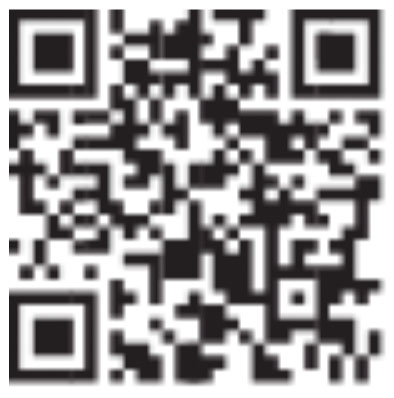If this is an Emergency, or you are worried about somebody hurting themselves or someone else, please call 911.
Crisis Services
Crisis Text Line : Text “MN” to 741741 to connect to a counselor.
Family Response and Stabilization Services (FRSS): 612-979-9511
Families in Hennepin County can access free, immediate in-person support and stabilization services if your child (ages 5-18 years old) experiences a mental, behavioral, or emotional issue that leaves you overwhelmed and unsure what to do or how to respond. Family response services are available every dat from 7:00 AM to 11:00 PM.
No situation is too small for family response experts; and their responses are driven by your family’s cultural, community, and clinical needs.

Hennepin County COPE Hotline : 612-596-1223
Available 24 hours a day, seven days a week, 365 days a year. Call to have staff come to your home, school or other public place, calm the situation and help you to decide what to do next, and connect you with resources.
Hennepin County Front Door: 612-348-4111
Get help in an emergency situation and get connected to resources, or get information about your child’s diagnosis and options for treatment.
National Domestic Violence Hotline: 800-799-7233
Active 24/7, available in English, Spanish, and 200+ other languages through interpretation services .
National Suicide Prevention Lifeline: 988
Call or text 988 to reach trained counselors that will listen, understand, provide support, and connect individuals to resources if necessary.
Minneapolis Crisis Nursery: 763-591-0100
Supports families in crisis 24 hours per day, 365 days per year through free, voluntary services that include a crisis hotline, 72 hour residential child care, in-home visits, and connection to further resources.
SAMHSA’s National Helpline: 1-800-622-4357
SAMHSA’s National Helpline is a free, confidential, 24/7, 365-day-a-year treatment referral and information service for individuals and families facing mental and/or substance use disorders.
Spanish Helpline: 1-877-AYUDESE (293-3373)
Asian LifeNet: 877-990-8585
Cantonese, Mandarin, Japanese, Korean & Fujianese
Mental Health Overview: Things you Need to Know about Mental Health
What Is Mental Health?
According to the U.S. Department of Health and Human Services, mental health includes our emotional, psychological, and social well-being. It affects how we think, feel, and act. It also plays a role in determining how we handle stress, relate to others, and make choices.
Mental health is important at every stage of life, from childhood and adolescence through adulthood. Many variables contribute to mental health, including biological factors, such as genes and brain chemistry; life experiences, such as trauma and abuse; and family history of mental health challenges.
Though mental health disorders are sometimes believed to affect only a small number of people, they are actually very common. The National Institute of Mental Health reports that just over 20 percent of children either currently have or have had at some point during their life a seriously debilitating mental health disorder. Even infants, toddlers, and preschoolers may experience significant mental health challenges. If left untreated, these problems may affect children’s development.
How to Recognize a Mental Health Crisis.
Not all mental health challenges and disorders require the same level of care. Early identification and treatment for mental health disorders can help families prevent the need for intensive, long-term, restrictive settings.
Many people learn to cope with mental illness through therapy and medication and never have a full-blown crisis. However, serious mental illness can lead to a crisis situation in which families need to seek outside help to stay safe and to get their child the level of care they need to become stable.
A mental health crisis occurs when someone is in so much distress that they become harmful to themselves or others, or are unable to function or resolve the situation without an intervention and intensive, ongoing care.
If your child or teen has the following symptoms, call 911 or a mental health crisis line. For those involving life-threatening situations, be sure to call 911.
- Talking about or making plans for suicide
- Increased agitation and threatening behavior
- Violence and cruelty to people or animals
- Loss of touch with reality including confusion, paranoia, hallucinations, and/or delusions
- Self-injurious behavior
Other crisis response teams found above can also be a helpful resource if your child is not in immediate danger, but is experiencing a high level of distress that is making it difficult for them to regulate their emotions.
A good resource to use in a crisis Family Response and Stabilization Services (FRSS), FRSS can be reached at 612-979-9511 and will provide immediate de-escalation support for families with children aged 5-18 and will support the family over the next 72 hours.
What is a Diagnosis and How to Get One?
A mental health diagnosis is developed based on information gathered about a person’s experiences and symptoms, and a description of a person’s behaviors. Information is gathered from the individual and from parents/caregivers. Information may also be collected from a wider group of support people, such as teachers or other family members.
Once a mental health diagnosis is provided, strategies to cope with what someone is experiencing and options for treatment are shared with the individual and family/caregiver. Strategies to cope may include schools, other organizations, and even families to make appropriate accommodations for a child with a mental illness.
To receive a diagnostic assessment, your child must have assessments with your physician/doctor or qualified mental health provider. There are different types of assessments and many ways of receiving one. Assessments may include interviews, observations, informal testing and norm-referenced tests. If your child sees a doctor, they may be a good place to start. If your child does not see a doctor, you will need to find a provider to see and assess your child, you could try FastTracker, a resource that will connect you with providers and further services.
Whomever you see, they will likely start with screenings. A screen is often a brief questionnaire that signals that the child may need further assessment. A screening does not provide a diagnosis or a treatment plan. If the screen indicates the child needs further assessment, the provider will do an assessment. Assessments are used to measure the level of services needed and aids in creating a treatment plan.
It is important to know, a diagnostic assessment does not always lead to a diagnosis. Furthermore, many families report unexpected wait times between referrals for screening, assessments and accessing services. These wait times, whether short or long, can add stress to your child and family. Please consider accessing your broader family, friends and community for support.
What Factors Determine what Services you can Receive?
If you decide to seek services for your child or receive a referral for services from a caregiver, such as a physician, a school counselor, etc. There are several factors that will determine what types of services you can receive.
- Level of need/Intensity
- Child’s diagnosis
- Some services are only available to those with specific diagnoses
- Payor of service Insurance – Public Insurance – Self Pay – Other
- Public insurances typically provide more access
- Some services are only available to those in the system
- Even if a service is court-ordered, insurance can still be a barrier, and service is not guaranteed
How Do I Access Services?
There are many ways to access services, and many services you can receive. There are factors that may determine what types of services your child can receive, including whether or not you or your child has insurance and the specific diagnosis. Many families receive help identifying services from their physician, mental health provider or school counselor. Once a child and/or family receives a referral for services, you will schedule time to start a service. It is important to know, many families report unexpected wait times between referrals for screening, assessments and accessing services. These wait times, whether short or long, can add stress to your child and family. Please consider accessing your broader family, friends and community for support.
Below are some suggestions for accessing services:
- Ask your physician or health clinic for resources
- Ask the school counselor for school resources and support services
- Find culturally specific mental health services here
- Find mental health services through FastTracker
- Contact Hennepin County Front Door, which can give you information about your child’s diagnosis and help you identify possible next steps
- Access community-based organizations that provide support to children and youth experiencing mental health challenges, such as Change To Chill.
- Find support groups for parents with children who experience mental health challenges, like online Facebook Groups such as:
- To access a Hennepin County Case Manager, click here.
Culturally Specific Children’s Mental Health Services
Offers a variety of available wellness and mental health services in and around the Twin Cities. The site allows individuals seeking services and those looking to connect others with services to a variety of culturally specific mental health services.
This comprehensive program offers intensive therapeutic, skill building and rehabilitative services to help strengthen the emotional, behavioral and social functioning of East African youth and their families.
MN Mental Health Providers of Color
List of POC providers that includes their services and their contact information.
Parent and Caregiver Support
Join our parent leader’s online community to find support:
https://www.facebook.com/profile.php?id=61556797940198.
Kinship Caregivers Support Group (651-917-4640) or contact [email protected]
NAMI MN
Get access to information, resources, and support groups.
Hennepin County Front Door (612-348-4111)
Get help in an emergency situation and get connected to resources, or get information about your child’s diagnosis and options for treatment.
Mental health resources for children and parents and help navigating school and special education needs.
Parent/Caregivers can Access Child Care while Seeking Mental Health Services
For parents/caregivers receiving social security for their own mental illness and accessing MFIP child-only support, you may now receive up to 20 hours of child care a week if receiving intensive treatment. For more information, contact your county representative.
How to Find a County Case Manager in Hennepin County
In Hennepin County, the process for accessing a children’s mental health targeted case manager (CMH-TCM) can be initiated in a few different ways—the access depends on the type of insurance coverage that they have.
Families can start with the Hennepin County Front Door (612-348-4111), to get help in an emergency situation and get connected to resources, or get information about your child’s diagnosis and options for treatment.
However, if you or your child is insured by Medicaid (or in MN commonly known as prepaid medical assistance program or PMAP), the Hennepin County Front Door may direct you to their PMAP contact. Please note, this isn’t always a responsive channel so you may need to be persistent with calls and/or emails. The other way to access is through Hennepin County’s contracted children’s mental health providers (also known as CMH-TCM). Below is a list of Hennepin County contracted providers.





